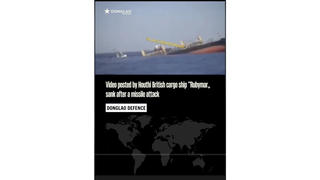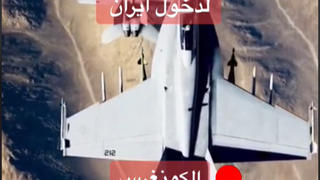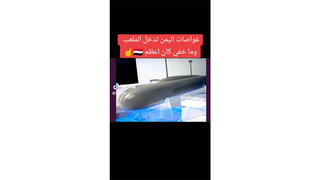
Did Yemen recently display North Korea-made BM-25 Musudan intermediate-range ballistic missiles for use against the United States, the United Kingdom and Israel? No, that's not true: Yemen is not believed to have any Musudans. Moreover, a still image used in the video on social media to support this claim was taken at a military parade in Pyongyang, North Korea, in 2010, not in Yemen's capital, Sanaa.
The claim appeared in a video (archived here) on TikTok on January 15, 2024, under the headline (translated from Arabic to English by Lead Stories staff):
Sanaa: Yemen displays its frightening power. which will confront the tripartite aggressors (America, Britain, the Zionist) entity.
This is what the post looked like on TikTok at the time of writing:

(Source: TikTok screenshot taken on Thu Jan 18 14:16:08 2024 UTC)
The 3:40-minute video presents an unidentified Arab anchorman who claims in a television report that Yemen has 90 BM-25 Musudan missiles. The headline states that Yemen will use these missiles against Israel in a show of solidarity with the Gaza Strip, and against the U.S. and U.K., which have carried out joint airstrikes against targets that belong to Yemen's pro-Iran Houthi rebels, who have been attacking U.S. naval forces and commercial shipping in the Red Sea. The footage depicts a still image of at least four Musudan missiles mounted on military vehicles, with an onlooker in military uniform taking pictures in what looks like a military parade.
A Google Lens reverse image search (archived here) led to an identical image published by CNN (archived here) on April 13, 2017, saying the picture was taken at a military parade in North Korea's capital, Pyongyang, in 2010. "Trucks transport what appear to be North Korea's Musudan intermediate-range ballistic missiles at a military parade in Pyongyang on October 10, 2010," the caption read, attributing the image to Kyodo News via Getty Images.
The same image also appeared in an April 24, 2013, report by Army Recognition (archived here), a Belgium-based online defense and security magazine that covers military issues, particularly land forces and related technical information.
The Arms Control Association, a respected U.S.-based organization that promotes public awareness for global arms control policies, said in an August 2023 fact sheet update (archived here) that Yemen has four different types of missiles, not including the Musudan. But the publication noted that there has been speculation that North Korea has transferred the Musudan missile to Iran.
The Center for Strategic and International Studies (archived here), a renowned American think tank based in Washington, said that the BM-25 Musudan is believed to be a "single-stage intermediate-range ballistic missile." It noted that the missile "is speculated to have a range of 2,500-4,000 km with a payload of 500-1,200 kg -- enough range to hold Guam and Japan at risk." The Center said the Musudan, based on the Soviet R-27 "Serb" SLBM missile, "uses a 4D10 engine propelled by unsymmetrical dimethyl hydrazine (UDMH) and nitrogen tetroxide (NTO)." It explained that the propellants "are more energetic than the kerosene compounds used in North Korea's Scud and Nodong missiles which would, in theory give them a longer range than other similarly sized missiles."
In Washington, President Joe Biden said in a statement (archived here) posted on the White House website on January 11, 2024, that the previous week's joint U.S.-U.K. airstrikes were "in direct response to unprecedented Houthi attacks against international maritime vessels in the Red Sea." He pointed out that Houthi attacks "have endangered U.S. personnel, civilian mariners, and our partners, jeopardized trade, and threatened freedom of navigation."












